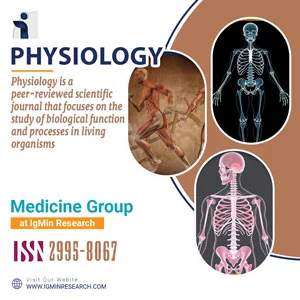Open Access Policy refers to a set of principles and guidelines aimed at providing unrestricted access to scholarly research and literature. It promotes the free availability and unrestricted use of research outputs, enabling researchers, students, and the general public to access, read, download, and distribute scholarly articles without financial or legal barriers. In this response, I will provide you with an overview of the history and latest resolutions related to Open Access Policy.
About
Physiology is the branch of biology that explores the normal functions and processes of living organisms, from the cellular level to the entire organism. It delves into how different systems work harmoniously to maintain homeostasis, adapt to changes, and sustain life. In the medical context, physiological understanding forms the foundation for diagnosing disorders and developing effective treatments that target the intricate workings of the human body.
The study of physiology encompasses a wide range of topics, including cardiovascular physiology, respiratory physiology, endocrine physiology, neurophysiology, and more. Researchers in this field investigate how different organs, tissues, and cells collaborate to carry out essential functions, such as metabolism, circulation, and nerve signaling. This knowledge is indispensable for unraveling the complexities of diseases and optimizing interventions for improved health outcomes.
General Science Group (1)

Why publish with us?
Global Visibility – Indexed in major databases
Fast Peer Review – Decision within 14–21 days
Open Access – Maximize readership and citation
Multidisciplinary Scope – Biology, Medicine and Engineering
Editorial Board Excellence – Global experts involved
University Library Indexing – Via OCLC
Permanent Archiving – CrossRef DOI
APC – Affordable APCs with discounts
Citation – High Citation Potential
Which articles are now trending?
Research Articles
- A Unified Mobility Model for Semiconductor Devices and Sensors, Including Surface Hydrodynamic Viscosity
- Risks and Effects of Medicinal Plants as an Adjuvant Treatment in Mental Disorders during Pregnancy
- Use of Augmented Reality as a Radiation-free Alternative in Pain Management Spinal Surgeries
- Improved Energy Valley Optimizer with Levy Flight for Optimization Problems
- Contribution to the Knowledge of Ground Beetles (Coleoptera: Carabidae) from Pakistan
- Enhancing Material Property Predictions through Optimized KNN Imputation and Deep Neural Network Modeling
Advertisement










